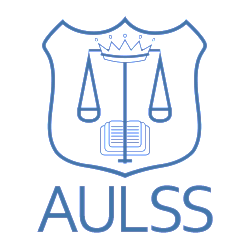First Nations leaders sue Commonwealth over climate change
Written by Gavin Choong, Grata Fund
In September 2013, representing the interests of 886 citizens, environmental group the Urgenda Foundation sued the Dutch Government for not doing enough to prevent the impacts of climate change. They were successful at every stage of appeal, with a final victory in the Dutch Supreme Court in 2019. Aside from being the first tort case successfully taken against a government challenging climate change, it also reflected the fact that “governments have binding legal obligations, based on international human rights law, to undertake strong reductions in emissions of greenhouse gases.”
As a result of the ground-breaking case, the Netherlands now has some of the most ambitious climate policies in the world. Urgenda’s case has become an inspiration for those around the world fighting for climate action through the judicial system.
Two such people are Uncle Pabai Pabai and Uncle Paul Kabai, Traditional Owners of Boigu Island and Saibai Island respectively. Like many living in the Torres Strait, they fear that their homes will be swallowed by rising sea levels caused by global warming.
“Climate change is already here: storm surges are getting worse and the seasons have changed as well. Our gardens now get flooded with salt water, and our homes, cemetery, school and community centre are all at risk. There are also a lot more mosquitos, so the risk of catching malaria is greater.”
- Uncle Paul Kabai, Applicant in the Australian Climate Case
Left with no other choice, Uncle Pabai and Uncle Paul have turned to the courts so that their communities would not have to flee their homes.
The two community leaders argue that, by failing to set more ambitious emissions targets, the Commonwealth has unlawfully breached its duty of care to protect the people, islands, and culture of the Torres Strait. This duty arises in part from the Torres Strait Treaty between Australia and Papua New Guinea, signed in 1978, which established a Protected Zone to preserve the ‘‘traditional way of life and livelihood of traditional inhabitants.”
If the Government does not take urgent climate action, Torres Strait Islanders are at risk of becoming Australia’s first climate refugees. This would mark another chapter of dispossession and cultural erasure which has long plagued our country.
Uncle Pabai and Uncle Paul’s case, the Australian Climate Case, has been developed in partnership with Urgenda. Their team of international legal experts, with a proven record of successful climate change litigation, has helped to develop the case and will continue to provide strategic and scientific support.
Uncle Pabai and Uncle Paul are represented by class action firm Phi Finney McDonald. The Australian Climate Case is funded by Grata Fund, a not-for-profit that supports marginalised communities and advocates for their legal rights. Grata Fund removes the financial barriers that prevent public interest test cases like this one from going ahead.
The hearing for the Australian Climate Case will commence on 5 June 2023. In the meantime, people around the country are supporting Uncle Pabai and Uncle Paul’s case by submitting stories about the climate impacts they have witnessed in their communities: from bushfires to floods, coastal erosion, heatwaves, mental health impacts and seasonal changes. By sharing the climate impacts they have experienced, Australians are showing the Government that climate change is already at our doorstep, affecting all Australians. You can join the movement by sharing your climate story here.
Find out more about the case and how you can stand behind Uncle Pabai and Uncle Paul at australianclimatecase.org.au
Gavin is a Volunteer Associate at Grata Fund and global youth spokesperson at Amnesty International.
